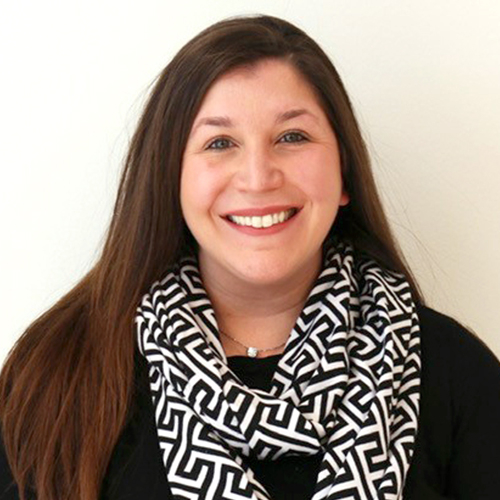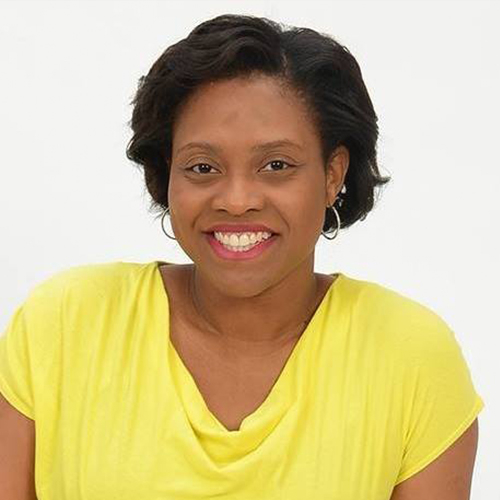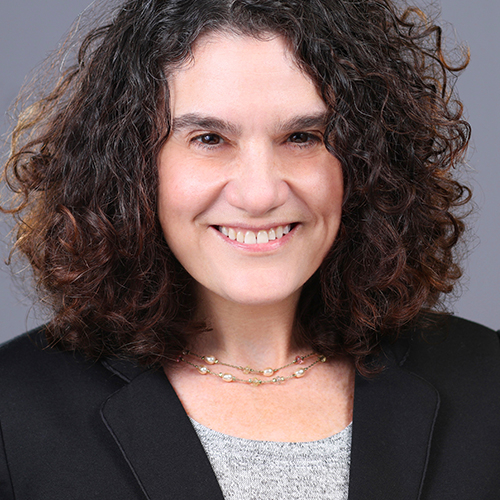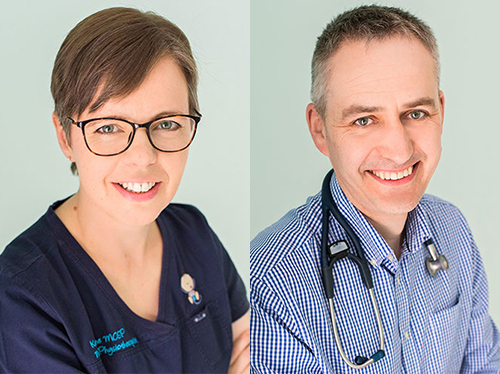GOLD Learning Tongue-tie Online Symposium 2021 - Day 1 Fundamental Skills
Welcome to the GOLD Learning Tongue-tie Symposium for 2021! 6 expert speakers present a comprehensive overview of the fundamentals of providing care to infants and young children with oral restrictions and their families. Learn more about the research that is currently available, the bigger picture of assessment for tongue-tie, the importance of anticipatory care, how to create a holistic team approach to caring for families and the virtual care of families with tongue-tied babies.
These presentations will leave you feeling more confident and armed with clinical skills that you can put into practice right away to help the families in your care. This program is approved for 5 CERPs (5 L-CERPs) and 5 Dietetic CPEUs. All presentations are available.
Group Registration: Receive additional discounts when you register a group of 10 or more. Contact us at [email protected] to learn more or submit your group.
Learn more about Day 2 of the Tongue-tie Symposium on Advancing Our Understanding. Dive deeper into the complex topic of oral restrictions in infants. Learn about oral restrictions in the NICU, the impact of oral restrictions on the airway, trauma, timing of release and navigating care when frenotomy doesn't help, new research on ultrasound analysis of the organization of tongue movements during breastfeeding and learn from the case studies of two infants with oral restrictions suffering from marasmus and kwashiorkor (severe malnutrition) and their recovery.


Rebecca Russo Hill, PhD, DNP, RN, FNP-C earned her BSN from the University of Rhode Island in 2006, her MSN and post-master’s certificate in nursing education from Duke University in 2010, her DNP from Duke University in 2013 and her PhD in Nursing from Boston College in 2021. Rebecca is a family nurse practitioner and certified as a lactation counselor and nurse educator. She is the current program director of prelicensure nursing programs at the MGH Institute of Health Professions in Boston, MA.
Rebecca’s dissertation research focused on symptoms of problematic feeding in infants with tongue-tie. She will collaborate with other health profession disciplines to advance the state of the science surrounding infant feeding, tongue-tie, and frenotomy. Her dissertation research has provided the foundation for a lifelong program of research to improve health care for mothers and their children. She is currently studying the effects of frenotomy on non-nutritive sucking mechanics.
Rebecca is an active member of several professional organizations including the American Nurses Association (ANA), American Association of Nurse Practitioners (AANP), the National League for Nursing (NLN) and Sigma Theta Tau International (STTI). Rebecca resides in Massachusetts, raising three children alongside her husband Jonathan.
2. Identify maternal symptoms that may be associated with infant tongue-tie in the breastfeeding dyad.
3. Describe symptoms of problematic feeding for infants diagnosed with tongue-tie.
Despite the low-level of evidence supporting the correction of tongue-tie for breastfeeding problems, recognition and treatment has increased substantially over the last 20 years. Recent systematic reviews have highlighted the findings from available research, the gaps in the science, and recommendations for future research. This presentation presents the results of a review of original research on tongue-tie and its treatment via frenotomy. Learn more about the maternal symptoms and signs of problematic feeding that may be associated with tongue-tie in the infant and what the available research tells us about recommendations for infants with tongue-tie.


Karese, like many parents, suffered in silence while her children struggled with the symptoms of undiagnosed sleep and breathing issues. One visit to a pediatric dentist changed the trajectory of their lives. Already a Registered Dental Hygienist (RDH), Karese, trained with Sandra Holtzman, Lois Laynee and Sarah Hornsby to establish her orofacial myology knowledge. With this initial training and numerous others, in a few short years she has not only resolved all her children's issues, but helped hundreds of patients, children and adults alike, discover how great life can be functioning on full. Her private practice, The Myo Spot is now a leader in the quest for myofunctional therapy awareness and public education. Her latest published book, Accomplished, delves into how to sleep better, eliminate burnout, and execute goals. Karese's mission is to transform and positively impact as many households as possible through dynamic breath, brain and body work.
1. Describe the relationship between tethered oral tissues and associated impacts on the breastfeeding dyad.
2. Describe the essential role anticipatory care has on achieving desirable outcomes for improving oral function for breastfeeding.
3. List members of the interdisciplinary team for post revision active wound management and rehabilitation.
4. Describe complications of poor active wound management and understand the difference between reattachment and suboptimal wound healing.
Anticipatory care plays an essential role in achieving desirable outcomes after the revision of tethered oral tissues. Tethered oral tissues are a common and underdiagnosed problem that impacts potentially 10% of the United States population. Lack of a universally accepted approach to diagnosis, treatment, and management creates confusion for the public and prohibits optimal care. This lecture dissects current research, trends, and information to present a deeper connection between oral function and anatomy during breastfeeding and tethered oral tissue revision management. Discover the interdisciplinary approach to restoring a functional and healthy breastfeeding relationship to the dyad and the critical importance of setting families up for success by providing adequate anticipatory care and guidance prior to revision.


Leslie has been providing lactation support in Central New Jersey for over 18 years - as a La Leche League (LLL) leader since 2002, an IBCLC at Mercer County WIC from 2014 to 2016, and as a private practice IBCLC since 2011.
Leslie grew up in New York and New Jersey. She graduated from Cook College/Rutgers with a BS in Biochemistry, and from Rutgers University/UMDNJ with a PhD in Biochemistry and Molecular Biology. Leslie's difficulties with early breastfeeding, the help she received from LLL, and challenges with returning to work laid the foundation for her understanding of the importance of skilled and compassionate lactation and infant feeding support.
Topic: Untangling the Big Picture of Tongue-Tie Assessment - [View Abstract]
1. Explain the process for assessing infant oral structure and motion and its impact on feeding.
2. List the components of a complete assessment that extend beyond the oral cavity.
3. Describe the ongoing assessments that are needed through the course of care to allow for adjustments in the care plan.
IBCLCs assess chest/breast and bottle feeding skills, and infant’s oral and body structures and motions that contribute to, or inhibit, the process of feeding as well as post-feeding comfort. When infants present with feeding dysfunction, the root of the issue is often tight frenulum (ties), or asymmetric/tense muscles/fascia, or both. IBCLCs help families navigate the differential assessment of feeding dysfunction, and at the same time support the family’s feeding and milk supply choices. This presentation will examine the bigger picture of assessment when ties are suspected. Because a narrow focus on only the oral cavity can negate other contributing factors, initial and follow-up assessments need to include not just what is going on in the infant’s mouth, but also take into account the infant’s body as a whole, family dynamics, feeding goals, and the creation of a manageable plan for the family. IBCLCs aid with oral/body exercises, referrals for oral evaluations and/or bodywork, help with pre/post frenotomy oral skills, and more - helping to adjust the care plan as infant feeding skills and parent goals grow and change. Developing the skill of big picture assessment is crucial in order to determine the best course of clinical care, meet the families needs, and allow for the best possible outcome.


Melissa Cole is a board-certified lactation consultant, neonatal oral-motor assessment professional and clinical herbalist in private practice. Melissa is passionate about providing comprehensive, holistic lactation support and improving the level of clinical lactation skills for health professional. She enjoys teaching, researching and writing about wellness and lactation-related topics. Her bachelor’s degree is in maternal/child health and lactation and her master’s degree is in therapeutic herbalism. Before pursuing her current path, Melissa’s background was in education and cultural arts, which has served her well in her work as a lactation consultant and healthcare educator. She loves living, working and playing in the beautiful Pacific Northwest with her 3 children.
Topic: Beyond Fenugreek: An Individualized Approach to Dietary and Herbal Galactagogues - [View Abstract]
Topic: Beyond the Basics of Latch: Support Strategies for Helping Babies when the Basics Aren’t Enough - [View Abstract]
Topic: Common Infant Digestive Health Concerns and Useful Support Strategies - [View Abstract]
Topic: Connection and Care: Virtual Support for Tongue-Tied Infants - [View Abstract]
Topic: Feeding is Movement: Activities for Supporting Optimal Infant Oral Function - [View Abstract]
Topic: Infant Gut Health: Common Concerns and Useful Support Strategies - [View Abstract]
Topic: Infant Oral Assessment: Exploring Anatomy and Function Beyond the Frenulum - [View Abstract]
Topic: Low Milk Production Detective Work: Assessment and Care Plan Considerations - [View Abstract]
Topic: New Thoughts on Infant Pre and Post-Frenotomy Care - [View Abstract]
Topic: Placenta Medicine as a Galactogogue: Tradition or Trend? - [View Abstract]
Topic: Thinking Critically About the Use of Clinical Lactation Tools - [View Abstract]
Topic: Will It Hurt? Frenotomy Aftercare Strategies to Optimize Healing Outcomes for the Newborn - [View Abstract]
1. Describe strategies to gather clinically relevant information when working virtually.
2. Describe techniques to assess oral anatomy and function when working remotely.
3. Discuss documentation, teamwork, and referral strategies for virtual consulting.
Providing virtual care has become a reality for many lactation professionals. How can we best consult families of tongue-tied babies virtually? How do we get the visual and functional information we need to guide our care when we are ‘hands-off’? This session will discuss strategies for health professionals working remotely including assessment, documentation, care plan formation, teamwork, and the referral process. While different than in-person consultations, virtual connection and excellent care for tongue-tied babies and their families is possible! Learning to adapt our practice style, gather information digitally, and pivot with the times is vital for our role in providing comprehensive lactation support virtually.


Kate is a Chartered Physiotherapist who works with infants, children and adults with oral myofunctional disorders.
She is Co-Director of the National Tongue Tie Centre where herself and her husband Justin, Consultant Paediatrician, lead a Team offering specialist services in a dedicated family centred environment.
Having trained at the University of Liverpool, she worked in both Leeds and Southampton, where she led and delivered the regional neonatal service for pre-term and high-risk infants, before moving to Ireland. She is a member of the Irish Society of Chartered Physiotherapists and is an IBCLC.
Kate has travelled many times over the last few years, mainly to the USA, to undertake further training in Orofacial Myofunctional Therapy, Craniosacral Therapy and Autonomic Nervous System Therapeutics.
Justin is a Consultant Paediatrician and a Fellow of the Royal College of Paediatrics and Child Health (FRCPCH) and a Fellow of the Faculty of Paediatrics, Royal College of Physicians of Ireland and is registered with the Medical Council (Number 171584) under the Specialist Division for Paediatrics.
He has spent thousands of hours on continuing education having attended numerous conferences and courses on tongue-tie, predominantly in the States, in order to be at the forefront of care for infants, children, and adults. He is also a board member of the International Consortium of Ankyloglossia Professionals (ICAP).
Justin's interest in Tongue Tie dates back to 1999 when his first daughter was born. At 5 days old she had her tongue tie divided in Southampton. Six children and four tongue ties later, he returned to Southampton to start his training in how to divide tongue ties himself. He has been treating tongue ties since 2008 and running a dedicated tongue tie clinic since 2010 and established the National Tongue Tie Centre with his wife Kate, Physiotherapist in 2017. Currently, Justin, Kate and the Team would assess and manage Tethered Oral Tissues in over one thousand children and adults each year.
1. Describe what each of the team members brings to the care of the infant and their family.
2. Describe how having a multi-disciplinary team on-site benefits the family.
3. Describe how to manage aftercare in infants who have had a frenotomy.
The management of Ankyloglossia has historically been controversial. To this day, the recognition of what makes a tongue frenulum restrictive such that it is ankyloglossia and how infants should be managed before, during and after surgery still generates debate between the professions involved in their care.
We will take you on our journey from awareness, through training and experience, always striving to optimise management of Ankyloglossia for infants and their families.
Accreditation
CERPs - Continuing Education Recognition Points
GOLD Conferences has been designated as a Long Term Provider of CERPs by the IBLCE--Approval #CLT114-07. This program is approved for 5 CERPs (5 L-CERPs).
Dietetic CPEUs - Continuing Professional Education Units:
Applicable to Dieticians & Nutritionists, this program is approved for 5 Dietetic CPEUs by the Commission on Dietetic Registration - the credentialing agency for the Academy of Nutrition and Dietetics.
If you have already participated in this program, you are not eligible to receive additional credits for viewing it again. Please send us an email to [email protected] if you have any questions.
Tags / Categories
(IBCLC) Clinical Skills, (IBCLC) Education and Communication, (IBCLC) Equipment and Technology, (IBCLC) Pathology, (IBCLC) Research, (IBCLC) Techniques, Breastfeeding the Tongue Tied Infant, Differential Diagnosis & Management, Tongue & Lip Tie Assessment
How much time do I have to view the presentations?
- The viewing time will be specified for each product. When you purchase multiple items in your cart, the viewing time becomes CUMULATIVE. Ex. Lecture 1= 2 weeks and Lecture Pack 2 = 4 Weeks, you will have a total of 6 weeks viewing time for ALL the presentations made in that purchase.
- Time for viewing the talks begins once you purchase the product. For Live Webinars & Symposiums, the viewing period begins from when the live event takes place. Presentations can be accessed 24/7 and can be viewed as many times as you like during the viewing period.
What are bundled lectures?
- Presentations may be available individually or via a bundled package. Bundled lectures are a set of lectures that have been put together based on a specific category or topic. Some lectures will be available in both individual and lecture form, whereas others will be available only via a bundled lecture pack.
Will there be Handouts?
- YES! Each lecture comes with a PDF handout provided by the Speaker.
Some lectures include a Q&A, what does that mean?
- During our online conferences, presentations that occur live are also followed by a short 15 minute Question & Answer Session. The Speaker addresses questions that were posted by Delegates during the presentation. We include the recording of these Q&A Sessions as a bonus for you.
How can I receive a Certificate?
- If this presentation offers a certificate, once you are done viewing the lecture or the lectures within a bundle, submit your attendance record in order to be able to download your certificate. You'll be able to see which credits are offered for the lecture by hovering over the "Credits Available" link within the "Speakers & Topics" tab.
Professionals that selected this package also viewed

|
|

|








